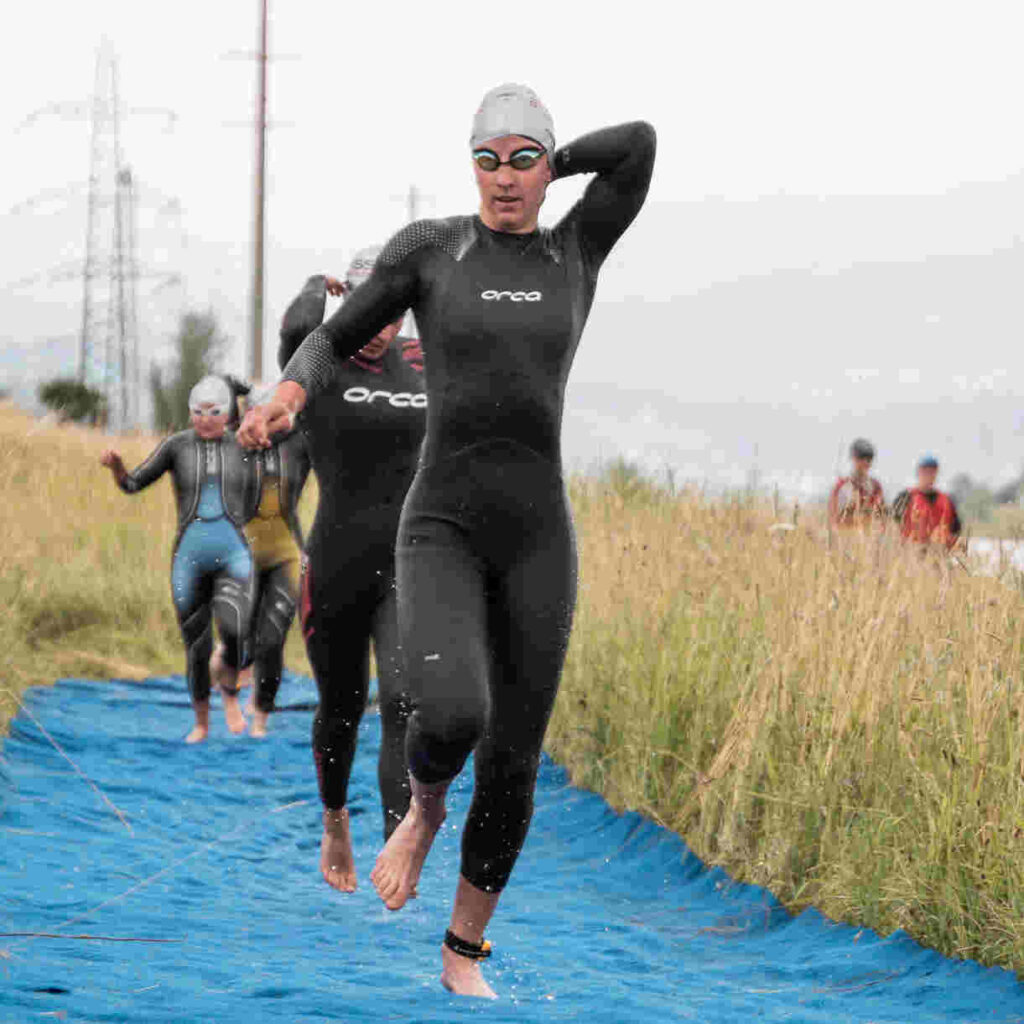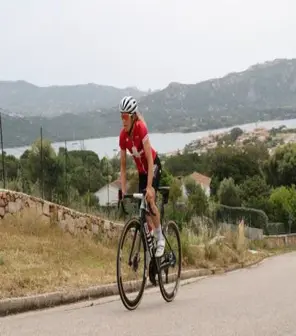(c) Max Studer
With an eighth-place finish in the Paris pre-Olympic triathlon, Julie Derron has confirmed her participation in the 2024 Olympic Games. A remarkable performance for the Zurich triathlete, who is already the 2021 European champion in Valencia and has been swimming with an Orca wetsuit since the start of the year. Despite her busy schedule, Julie was kind enough to answer a few questions at the beginning of August.
Julie, can you introduce yourself in a few words?
My name is Julie Derron, I’m 26 years old and I’m from Zurich. I’m a professional triathlete and mainly race short distance, although I do compete in the half Ironman every now and then. In 2021 I became European champion over the Olympic distance and my next big goal is to participate in the Olympic Games in Paris in one year. I also completed my Master’s degree in Food Process Engineering at ETH this spring.
You started triathlon very young. How did you discover this sport?
When I was younger, there was also an Ironkids race as part of Ironman Switzerland in Zurich. My sisters had already competed the year before, so I wanted to emulate them and did my first triathlon when I was about six. Back then, it was mostly about doing the same as my sisters and winning a cool prize. Triathlon was always a cool experience with the whole family.
You’ve been doing triathlon at international level for over 10 years, with demanding training. How do you manage to find the necessary motivation for training?
Sport and triathlon in particular is a lot of fun for me. I am an exercise person and feel very happy after doing sport. I also have high goals and know that doing a lot of training brings me one step closer to my goals. It also helps to have a good training environment like I have here in St. Moritz with my group around coach Brett Sutton.
Can you give an example of the daily routine of a professional triathlete?
Since we have to balance three disciplines, every day looks a little different. For example, a normal Monday for me consists of a 90-minute swim workout at 7am, then I go home and have breakfast. Shortly before noon I start my first bike training. It’s usually hill reps to build up strength. After lunch I usually read something or answer e-mails and take a short nap. Then at around 3:30pm, a second bike workout starts, which is more focused on endurance. Afterwards I eat dinner with my sister, watch some TV and soon go to bed. The training the next day is then mostly focused on running as the main unit.
Parallel to your sporting career, you successfully completed your studies at ETH in June 2023. How did you manage to balance these two activities?
It takes good time management and discipline to balance studying and elite sport. Fortunately, I was able to make certain adjustments to my schedule at ETH and thus create more time for sport. It is exhausting, especially when competitions and exams fall on the same period, but when both succeed, the reward is all the greater. Besides, I also enjoyed studying, so it’s a little easier.
Your sister Nina is also a professional triathlete. Is that an advantage for motivation?
It helps me a lot that my sister Nina also does triathlon. We can train together and motivate each other on difficult days. But what I find even more important is that with Nina I have a reference person who experiences the same and understands me and can also advise me in many areas.
What are your next races and goals?
My next race is the Olympic Test Event in Paris [17.8 – Julie finished 8th]. After that I’ll compete in the XL Triathlon de Gérardmer (a middle-distance race), which I’ve already won twice. And on 10 September, I will compete in a World Cup race in Karlovy Vary. My big goal is to qualify for the Olympic Games in Paris in 2024.
You swim with an Orca Apex Flow. Can you give us some quick feedback on the suit?
The Apex Flow is super comfortable and makes me feel like I’m not wearing a wetsuit. Still, it gives a good water position and feels fast. The fit is snug but not constricting and the material is comfortable and doesn’t cause any abrasions. I can also take the suit off very quickly, which is very important, especially on the short distance course, where change times can be crucial.
Finally, what advice would you give to a young athlete who wants to start triathlon?
It certainly makes sense to join a triathlon club so that you can learn the basics with friends and have fun with the sport at the same time. Triathlon is a social sport and if you can travel to a race together and then share successes together it is all the more enjoyable. It also helps to have a long-term plan and not stress about achieving results immediately. If you keep at it, success will come.

(c) Swiss Triathlon




